Did you know that Sweden has a rich and fascinating naming tradition? Swedish boy names are often influenced by mythology and are infused with meaning and history. From classic names like Erik and Anders to more unique options like Ragnar and Sven, Swedish boy names offer a wide range of choices for you as a parent looking for a meaningful and distinctive name. In this blog post, I'll dive into the world of Swedish boy names, exploring some origins and meanings.

Jump to:
- Introduction
- What is namnsdag?
- Most common boy names in Sweden
- Most popular boy names throughout the years
- Traditional Swedish men's names and their meaning
- Most common double names
- Old Swedish boy names
- Some special and uncommon Swedish boy names
- Names inspired by nature
- Swedish royal boy names
- 50 name ideas from Astrid Lindgrens stories
- Names your boy after a food
- More about Swedish culture
Introduction
Names hold significant importance in Swedish culture, and parents often take great care in selecting the right name for their child. In Sweden, there are specific laws that regulate names, and parents must follow certain guidelines when giving names.
Swedish names often are derived from Old Norse or other Scandinavian languages. For example, the name Erik, which means "eternal ruler," is a popular Swedish name that can be traced back to the Viking era.
In recent years, there has been a trend towards using more international names in Sweden, like Matteo, Aston, and Bill, but traditional Swedish names remain popular also. Some popular Swedish boy names include Alfred, Edvin, Axel, and Emil.
Sweden is also very multicultural, and 20% of the population is foreigners. This is seen on the list of most popular boy names where Mohammed, Ali, and Amir are presented.
Many gender-neutral names in Sweden can be used for both boys and girls. Some popular gender-neutral boy names are Ture, Sam, Love, Levi, Elis, and Loke.
See also the list for Swedish girl names.
What is namnsdag?
Namnsdag is a traditional celebration in Sweden, Finland, and some other countries that takes place on a specific day of the year dedicated to a particular name. Each name has its own designated day in the calendar, and people who bear that name celebrate on their respective namnsdag.
In Sweden, name days have been celebrated since the Middle Ages and were originally associated with the Christian calendar, with each day commemorating a saint. However, over time, many non-religious names have been added to the calendar, and namnsdagar have become more of a secular celebration.
On a namnsdag, people with that name are often congratulated by family and friends, and sometimes receive small gifts or cards. It is also common for workplaces and schools to acknowledge the namnsdag of their employees or students.
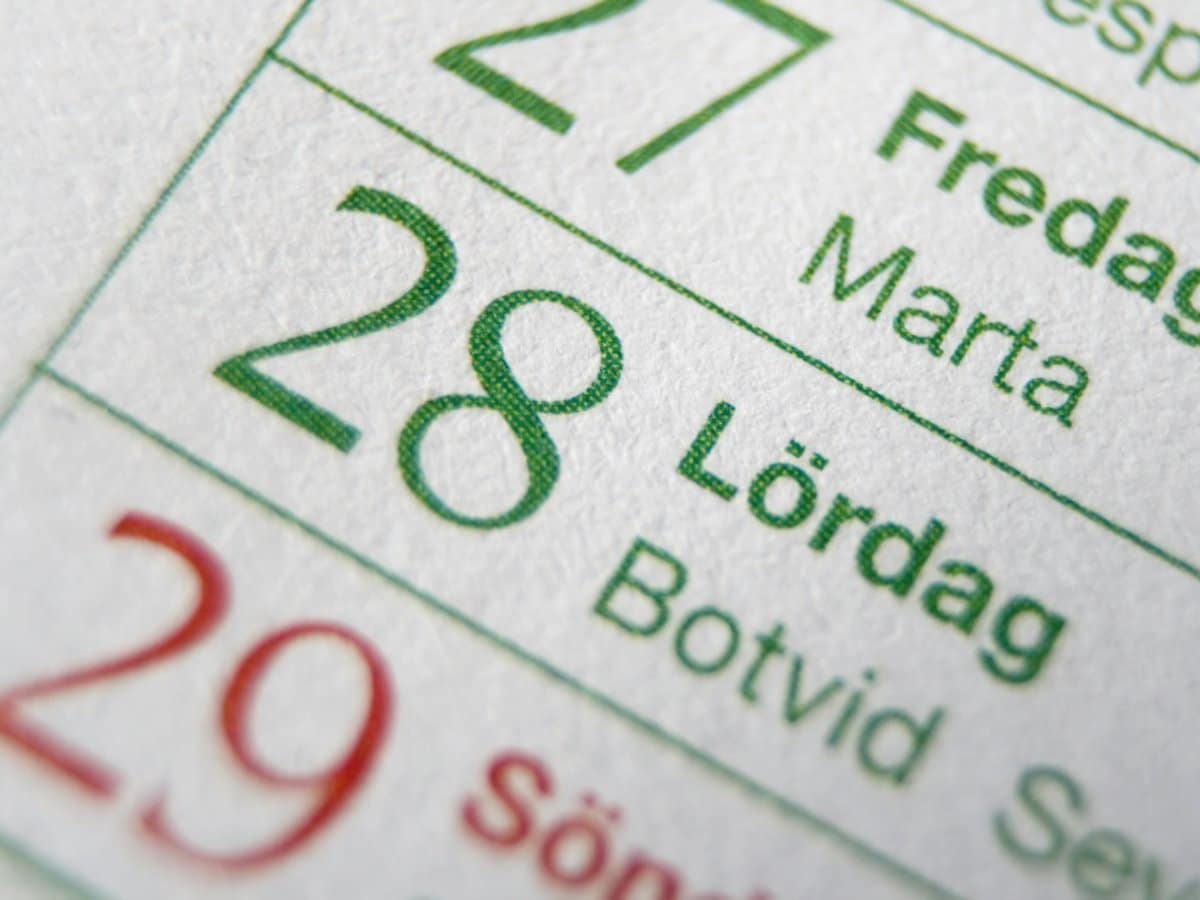
Most common boy names in Sweden
Here is a list of the most common boy names given for babies year 2022.
| Name | Amount named year 2022 |
|---|---|
| William | 690 |
| Liam | 697 |
| Noah | 677 |
| Hugo | 643 |
| Oliver | 629 |
| Lucas | 616 |
| Nils | 579 |
| Matteo | 571 |
| Valter | 566 |
| August | 565 |
| Elias | 559 |
| Leon | 559 |
| Adam | 556 |
| Leo | 545 |
| Ludvig | 507 |
| Alfred | 502 |
| Oscar | 490 |
| Sam | 488 |
| Theo | 474 |
| Otto | 469 |
| Arvid | 450 |
| Harry | 436 |
| Frans | 429 |
| Charlie | 424 |
| Elliot | 407 |
| Isak | 407 |
| Malte | 401 |
| Theodor | 395 |
| Vincent | 383 |
| Elton | 371 |
| Olle | 366 |
| Louie | 363 |
| Benjamin | 358 |
| Gabriel | 351 |
| Ebbe | 343 |
| Alexander | 338 |
| Adrian | 337 |
| Axel | 337 |
| Love | 328 |
| Henry | 325 |
| Tage | 217 |
| Filip | 315 |
| Ted | 315 |
| Noel | 310 |
| Josef | 300 |
| Mohammed | 298 |
| Melvin | 297 |
| Jack | 287 |
| Aron | 286 |
| Viggo | 281 |

Most popular boy names throughout the years
1920
- 1. Anna
- 2. Ingrid
- 3. Karin
- 4. Rut
- 5. Inga
- 6. Ulla
- 7. Kerstin
- 8. Elsa
- 9. Britta
- 10 Birgit
1930
- Kerstin
- Ingrid
- Ulla
- Karin
- Siv
- Inger
- Anna
- Barbro
- Gun
- Berit
1940
- Eva
- 2. Kerstin
- 3. Inger
- 4. Birgitta
- 5. Karin
- 6. Ulla
- 7. Ingrid
- 8. Anita
- 9. Monica
- 10. Margareta
1950
- Eva
- 2. Lena
- 3. Kristina
- 4. Karin
- 5. Kerstin
- 6. Monica
- 7. Birgitta
- 8. Inger
- 9. Elisabeth
- 10. Ingrid
1960
- 1. Mikael
- 2. Anders
- 3. Peter
- 4. Thomas
- 5. Lars
- 6. Per
- 7. Mats
- 8. Stefan
- 9. Jan
- 10. Magnus
1970
- 1. Johan
- 2. Fredrik
- 3. Mikael
- 4. Daniel
- 5. Magnus
- 6. Mattias
- 7. Anders
- 8. Peter
- 9. Andreas
- 10. Jonas
1980
- 1. Johan
- 2. Daniel
- 3. Andreas
- 4. Fredrik
- 5. Mikael
- 6. Erik
- 7. Christoffer
- 8. Marcus
- 9. Mattias
- 10. Niklas
1990
- 1. Marcus
- 2. Erik
- 3. Simon
- 4. Alexander
- 5. Viktor
- 6. Oskar
- 7. Johan
- 8. Daniel
- 9. Filip
- 10. Anton
2000
- 1. Oskar
- 2. William
- 3. Lucas
- 4. Filip
- 5. Erik
- 6. Alexander
- 7. Viktor
- 8. Emil
- 9. Elias
- 10. Anton
2010
- 1. William
- 2. Oskar
- 3. Lucas
- 4. Liam
- 5. Elias
- 6. Oliver
- 7. Hugo
- 8. Alexander
- 9. Mohamed
- 10. Charlie
2020
- 1. Noah
- 2. William
- 3. Hugo
- 4. Lucas
- 5. Liam
- 6. Oscar
- 7. Oliver
- 8. Matteo
- 9. Elias
- 10. Adam
Traditional Swedish men's names and their meaning
| Name | Meaning |
|---|---|
| Anders | The name is a form of Andreas, which in turn originates from Greece and means "man", "masculine" or "human". |
| Alexander | Alexander is a name of Greek origin (Aléxandros), formed from two words that mean "defend" and "man", meaning "defender of the people". |
| Arne | Arne is a Nordic male name that contains a Germanic root arn- "eagle". The oldest record in Sweden is from the 11th century on a stone near Nora Lake. |
| Bertil | An ancient German name, derived from the word bercht, which means "bright, shining". The name was a trendy name in the 1920s and 1930s, inspired by Prince Bertil. |
| Bengt | Bengt is a male name that has existed in Sweden since at least the 12th century. It is a Swedish form of the Latin name Benedictus, which means "the blessed". |
| Bror | The name means brother in Swedish. |
| Conrad | Konrad is a male name of ancient Germanic origin, Kuonrat. It is formed from kuoni - bold and rat - counsel, meaning "bold counselor". |
| Christer | Krister, or Christer, is a male name and a Nordic variant (originally Christiern) of Kristian, which in turn is of Latin origin and means "Christian". |
| Christian | Same as above. It was a common name among Nordic (Danish) kings in the 1400s and 1500s. |
| Daniel | Hebrew male name meaning "God is my judge". |
| Emil | Emil is likely derived from the Roman family name Emilius and came to Sweden via the French variant Émile. It originates from the Latin word "aemulus," which means "eager" or "industrious." |
| Erik | Germanic or Old Norse origin that means "honored" or "esteemed" . |
| Gustav | Gustav (Gustaf) has traditionally been assumed to be composed of the folk name göt and stav, i.e. "the staff of the göt". |
| Evert | Evert or Ewert is a male name of German origin. It is a Low German form of Eberhard which is formed from eber - "wild boar" and hard - "hard", "strong". The name has been used as a name in Sweden since the 14th century. |
| Fredrik | Germanic origin composed of Proto-Germanic "frithuz" (peace) and "rikz" (ruler). |
| Henrik | Comes from the German name Heinrich. "Heim" means home and Rich"ruler". |
| Johan | Comes from the Greek John which in turn is based on an Aramaic name meaning "God has had mercy". |
| Joakim | Joakim or Joachim is a male name, originally Hebrew Jehoiachim meaning "God will establish". |
| Karl | Germanic origin derived from the Proto-Germanic "karlaz" (man/free man). |
| Kenneth | Celtic name formed from the Gaelic word canach meaning "beautiful" or "beautiful". |
| Linus | Latin form of the Greek male name Li'nos, meaning "He with flaxen hair". |
| Nils | Nordic short form of Nikolaus, meaning "victory of the people". |
| Magnus | Latin nickname meaning "big". |
| Otto | German origin, a short form of names of Ot-, which are formed into a word meaning "property" or "wealth". |
| Oscar | Oskar or Oscar means the one god. The Celtic name came from the old Icelandic Ásgeirr, which is composed of the words ass as in asagudar and geirr meaning "spear". The name can perhaps be translated as "spear of god", "warrior of god" or "weapon of god". |
| Per, Pär | A Nordic short form of Petrus which is a Latin form of the Greek name Petros, which is a translation of the Aramaic name Kefas meaning rock. |
| Stefan | Stefan is a male name originating from the Greek name Stefanos which means "crowned". |
| Sven | Old Norse male name with the meaning "young man, youth, lad". |
| Thomas | Aramaic word meaning "twin". |
| Ulf | Ulf is an Old Norse name, a really old-fashioned spelling of the word ulv (=wolf). |
| Valter, Walter | Comes from the German Waltherti which is composed of two words meaning power and warrior. |
| Viktor | Viktor or Victor is of Latin origin and means "victorious" and "Royal". |
| Vidar | Old Norse name, composed of the words "tree" and "man". |
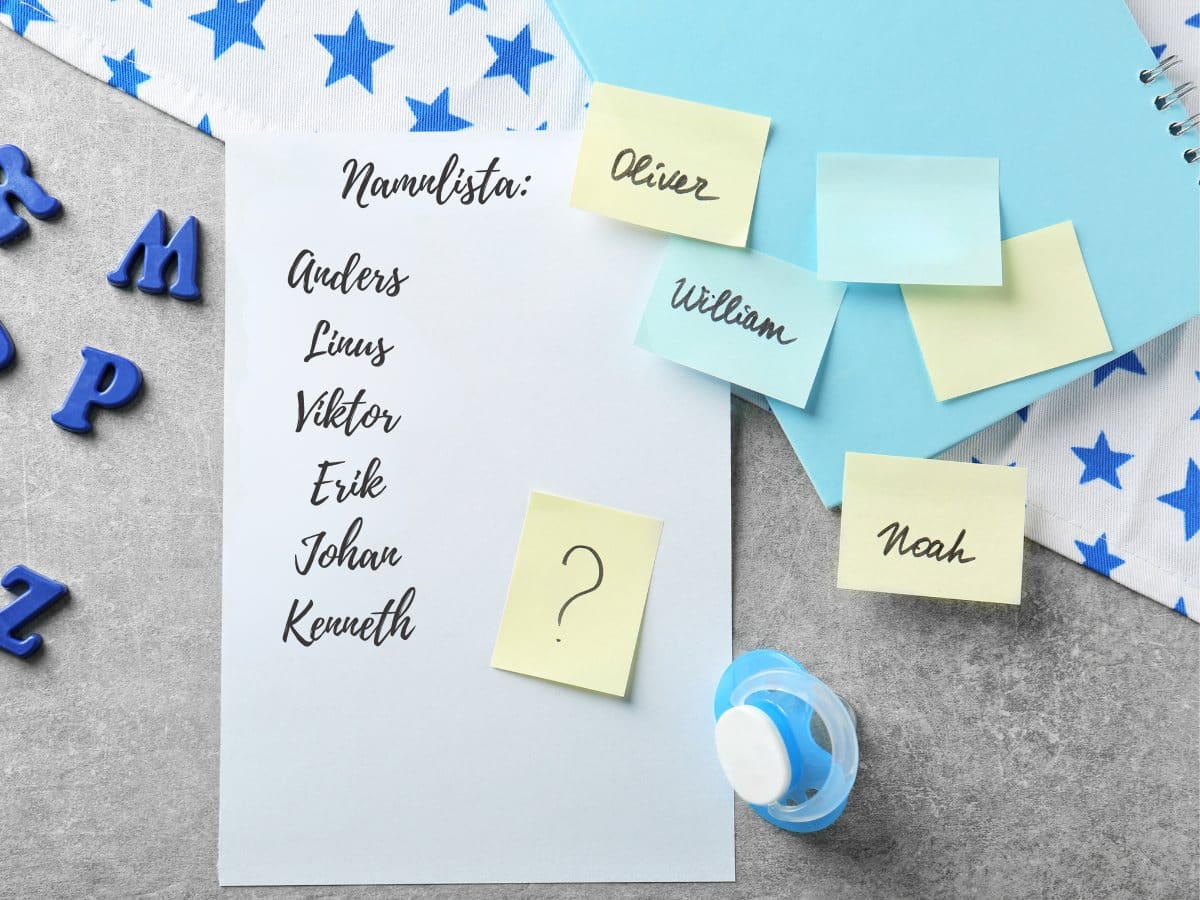
Most common double names
| Name | Amount with this name in Sweden |
|---|---|
| Jan-Erik | 7562 |
| Lars-Erik | 7171 |
| Per-Olof | 6581 |
| Jan-Olof | 4873 |
| Lars-Göran | 4828 |
| Karl-Erik | 4329 |
| Carl-Johan | 4144 |
| Sven-Erik | 4072 |
| Per-Erik | 3783 |
| Lars-Olof | 3575 |
Old Swedish boy names
Old Swedish boy names have a rich and diverse history, with many of them dating back to the Viking Age and the Middle Ages. Here are some examples of old Swedish boy names that were used in Vikinga time and their meanings:
- Ragnar - This name means "warrior" or "army rule." It was a popular name among Viking chieftains and warriors.
- Birger - This name means "to help" or "to protect."
- Björn - This name means "bear" and was a common name among Viking warriors and chieftains.
- Brand- Meant sword blade in Vikinga era. Nowadays means there was a fire.
- Harald - This name means means "ruler" or "leader".
- Jerker- In English, the origin of Icelandic "Eirikr" and Swedish "Erik" is the Old Norse name "Eiríkr", means "one ruler" or "the always ruling".
- Rudolf - Old Norse: Hrodulf. Has the words honor and wolf in it.
- Ulf - This name means "wolf".
- Einar - Old Norse word "einheri" refers to a warrior in Odin's army, specifically those who have died in battle and been chosen by Odin to join his army in Valhalla. The term can be translated as "one army" or "one warrior".
- Olof - Means ancestor and descendant.
- Thorsten - This name means "Thor's stone"
- Viking- means "he who hides in the bay"
Some special and uncommon Swedish boy names
- Abbott
- Agne
- Albus
- Algot
- Benji
- Birk
- Carsten
- Edison
- Einar
- Erling
- Eskil
- Findus
- Frej
- Greger
- Gunnar
- Hampus
- Helge
- Henning
- Herman
- Hjalmar
- Ivar
- Jarl
- Justus
- Konrad
- Luka
- Maximilian
- Nelix
- Ossian
- Peder
- Reidar
- Sigfrid
- Sören
- Theodor
- Torsten
- Vilgot
- Öivind
- Örjan
Names inspired by nature
| Name | Meaning |
|---|---|
| Adrian | Association to the Adriatic sea. |
| Alve | A form of Alf (friend of the elves). |
| Björn | It means bear in Swedish. |
| Ilan | Means bear in Swedish. Name is used already in the Viking era. Gives association to big and strong. |
| Sixten | Means victory and stone. An older form of the name is Sigsten. |
| Björk | It means birch in Swedish |
| Stig | Means a path in Swedish. |
| Timotej | A type of grass grown in Sweden. |
| Orion | A star cancellation. |
| Vide | Willowtree in Swedish. |
| Sten | Means rock in Swedish |
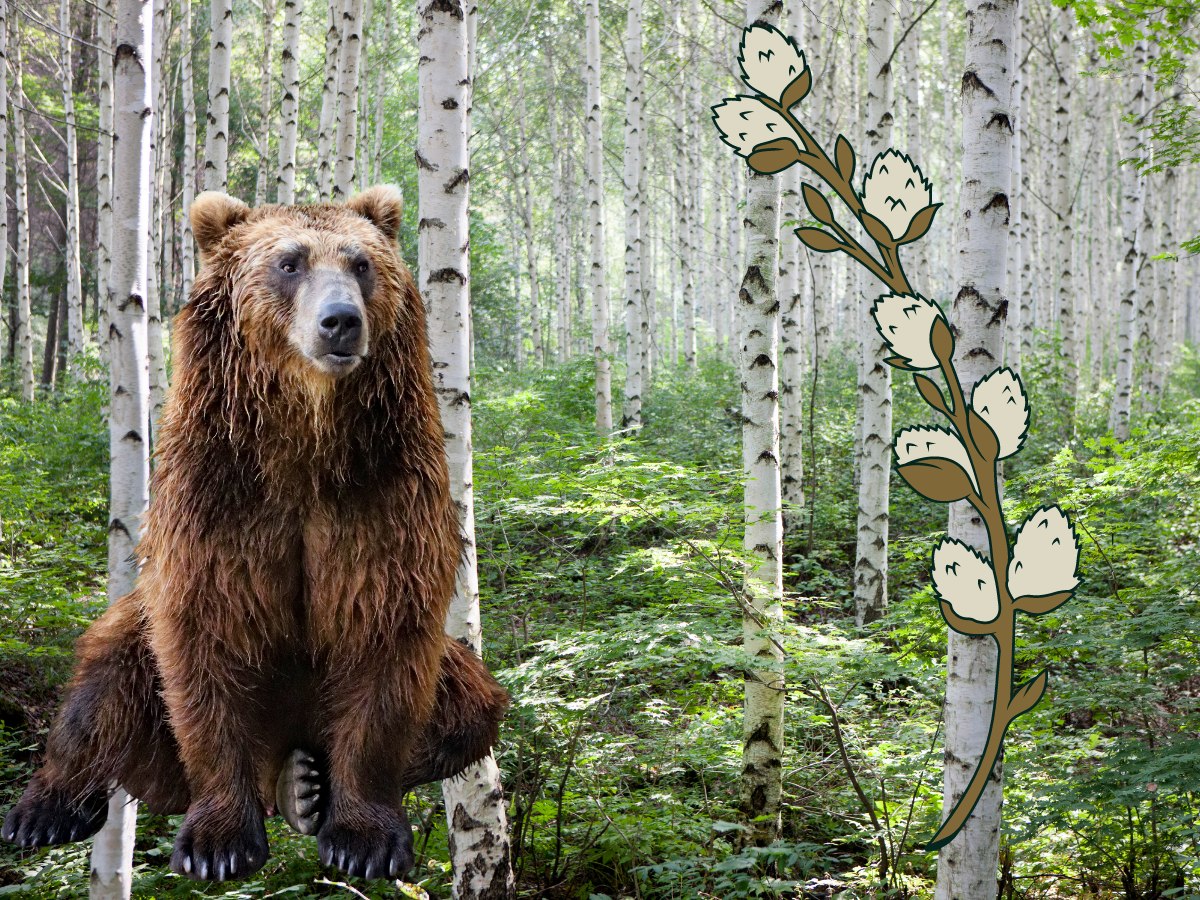
Swedish royal boy names
Here are some traditional Swedish boy names that members of the royal family have used:
- Gustav, Karl Gustav
- Adolf
- Bertil
- Oscar
- Magnus
- Philip
- Wilhelm
- Erik
- Carl + Carl Filip
- Fredrik
- Ragnvald
- Sigvard
- Sten
- Styrbjörn
- Sven
- Albrekt
- Alf
- Anund
- August
- Bengt
- Birger
- Edmund
- Holmger
- Håkan
- Johan
- Ludvig
- Lennart
- Olof
- Sverker
- Sigismund
The current ruling family can be of inspiration of names also:
- Carl XVI Gustaf Folke Hubertus
- Olof Daniel
- Oscar Carl Olof
- Carl Philip Edmund Bertil
- Alexander Erik Hubertus Bertil
- Gabriel Carl Walther
- Chris O’Neill
- Nicolas Paul Gustaf
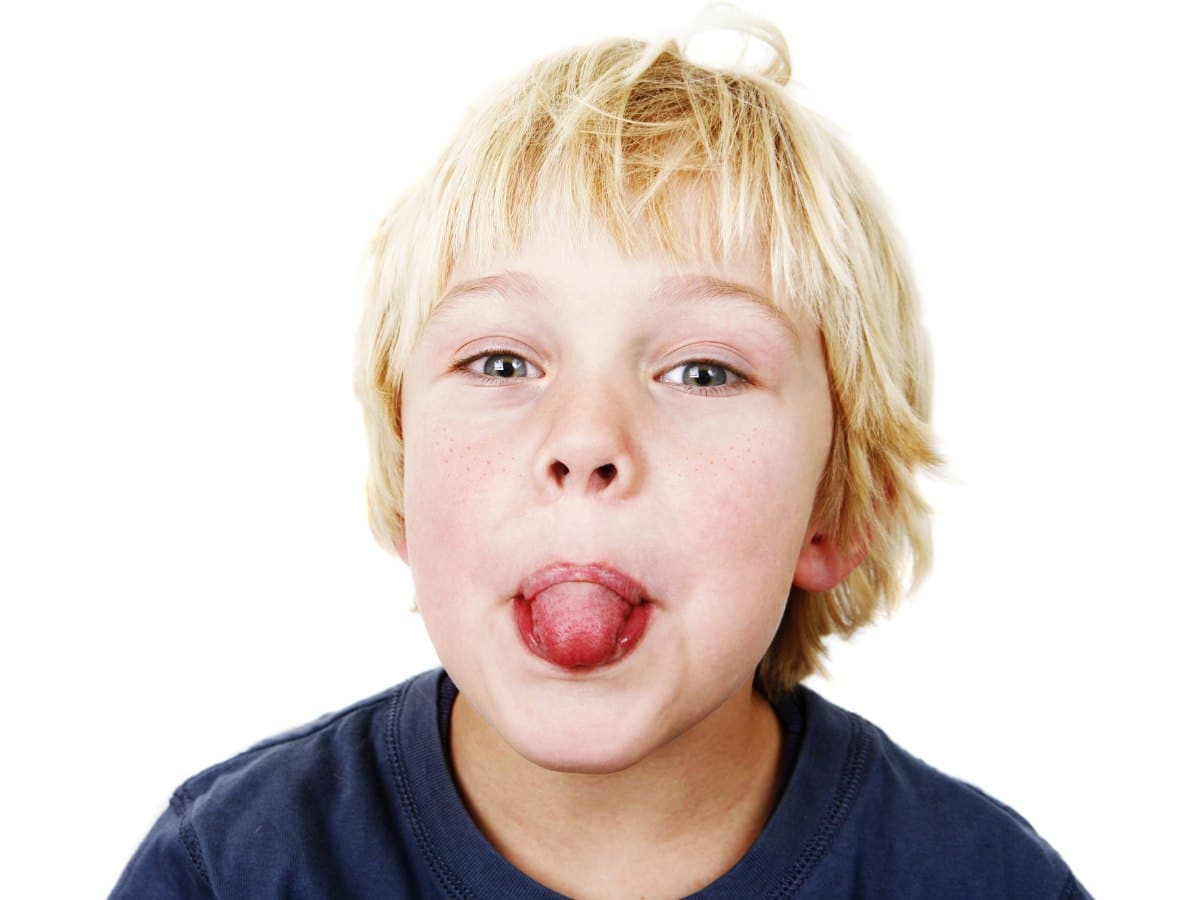
50 name ideas from Astrid Lindgrens stories
- Abbe: Abbe Nilsson in Lugnet is Madicken's friend and neighbor.
- Albin: Albin is one of the main characters in the story "Hop, Skip, and Jump High" which is included in the collection "Kajsa Kavat".
- Alfred: in the books about Emil of Lönneberga.
- Anders: Anders is the leader of the White Rose in the books about Kalle Blomkvist
- Anton: Anton Svensson is Emil and Ida's hard-working father in Lönneberga.
- Assar: The master thief Assar Bubbla steals Astrid Lindgren's Pippi manuscript in the picture book "Assar Bubbla".
- Artur: Uncle Einar's villainous acquaintance in "Mästerdetektiven Blomkvist".
- Benka, Bengt: Bengt is a classmate of Tommy and Annika in Pippi Longstocking.
- Bertil: The main character in "Nils Karlsson-Pyssling", also the name of Britt-Mari's friend in Astrid Lindgren's first book "Britt-Mari Opens Her Heart".
- Birk: Birk Borkason from Ronja the Robber's Daughter.
- Björn: The primary school teacher in "Vi på Saltkråkan" who is in love with Malin Melkerson.
- Bosse, Bo: Several characters have this name in Astrids books.
- Dodik: One of the guards at the wall in "The Brothers Lionheart".
- Efraim: Captain Efraim Longstocking, formerly the terror of the seas, now the king of the South Seas, is Pippi Longstocking's father.
- Einar: Eva-Lotta's mother's shady cousin in the first book about "Mästerdetektiven Blomkvist".
- Elof: A little boy who is in the story "Pippi Longstocking's Christmas Tree", also the name of one of Madicken's classmates.
- Emil: Emil in Lönneberga.
- Eno: The name of an old man that Mio and Jum
- Filip, Fille: Filip and Rulle are two thieves in Pippi Longstocking.
- Fiolito: The chief robber who tries to steal Mimmi's pearls in Ronia, the Robber's Daughter.
- Fjosok: One of Mattis's robbers in Ronia, the Robber's Daughter. Like some of the other names in the book, it is taken from the Swedish mountain world: Fjosoken is a lake.
- Fredrik: "Fredrik with the foot" is a kind bully in Bill Bergson Lives Dangerously.
- Fridolf: A sailor on the Hoppetossa, Captain Efraim Longstocking's ship.
- Gottfrid: The mayor's son in Emil in Lönneberga.
- Gunnar: The boy who becomes Peter and Petra's classmate in the story with the same name.
- Göran: The main character from the story In Twilight Land.
- Hilding: One of the villains in Rasmus and the Vagabond.
- Hubert: The hunter in The Brothers Lionheart.
- Jerker: Britt-Mari's little brother in Britt-Mari Opens Her Heart.
- Jim: Jim and Buck are two bandits who want to steal the pearls of Kurrekurredutt Island in Pippi in the South Seas.
- Jiri: Jiri and his siblings live in the Land of Faraway in Mio, My Son.
- Jocke: Jocke Kis is a pauper in the story Plays My Lind, Sings My Nightingale?
- Joel: The shopkeeper's son in The Children of Noisy Village.
- Joen: One of Mattis's robbers in Ronia, the Robber's Daughter.
- Johan: Johan is one of the Melkerson children in Seacrow Island.
- Jonas: Jonas is Lotta's older brother in Lotta on Troublemaker Street, and Madicken's father.
- Jonatan: Jonathan Lionheart, Skorpan's older brother.
- Jonte: Jonte is one of the members of the Red Roses in the Bill Bergson books.
- Julius: Uncle Julius is a difficult old relative who comes to live with Lillebror in The Brothers Lionheart.
- Krister: Krister and Gunilla are Lillebror's friends in Karlsson on the Roof.
- Laban: A terrible bully who steals a hot dog vendor's sausages in Pippi Goes Aboard.
- Labbas: One of Mattis's robbers in Ronia, the Robber's Daughter.
- Lars, Lasse: Lisa's and Bosse's brother in The Children of Noisy Village. Astrid Lindgren's son was also named Lasse.
- Lennart: Kati's boyfriend, whom she later marries, in the books about Kati.
- Martin: Doctor Berglund's son in Madicken and Junibacken's Pims.
- Mattias: Skorpan calls Mattias his grandfather in The Brothers Lionheart.
- Nicke: One of the villains in Bill Bergson Lives Dangerously.
- Niklas: One of the Melkerson children in Seacrow Island.
- Nonno: A cowherd on Green Meadow Island in Mio, My Son. Nonno carves wooden flutes for Mio and Jum-Jum, and his grandmother bakes the Bread that satisfies hunger.
- Ola: Ola from Jola, a poor boy in the Norka Poorhouse, in Play My Lute, Sing My Nightingale?
How many names do Swedish people have?
Swedish people typically have one or two given names, followed by a family name. By law, a child must have one first name and one last name. There are no rules to how many first names a person can have. The highest count is 12 names with 10 persons having that amount of first names.
Nearly 90 percent of all people have more than one first name. An interesting fact is that within the current royal family, they bear more first names than the average person. For example, Princess Birgitta's daughter, a cousin of the king's children, has seven first names: Désirée Margaretha Victoria Sibylla Catharina Louise Maria.
During the late Middle Ages, the use of multiple first names began to spread on the continent. It first appeared among princes and nobles and eventually made its way to Sweden. In the nobility, it became increasingly common during the 17th century to have two first names. However, in other social classes, it was still most common to have only one first name, and it wasn't until the middle of the 18th century that people began giving their children two first names.
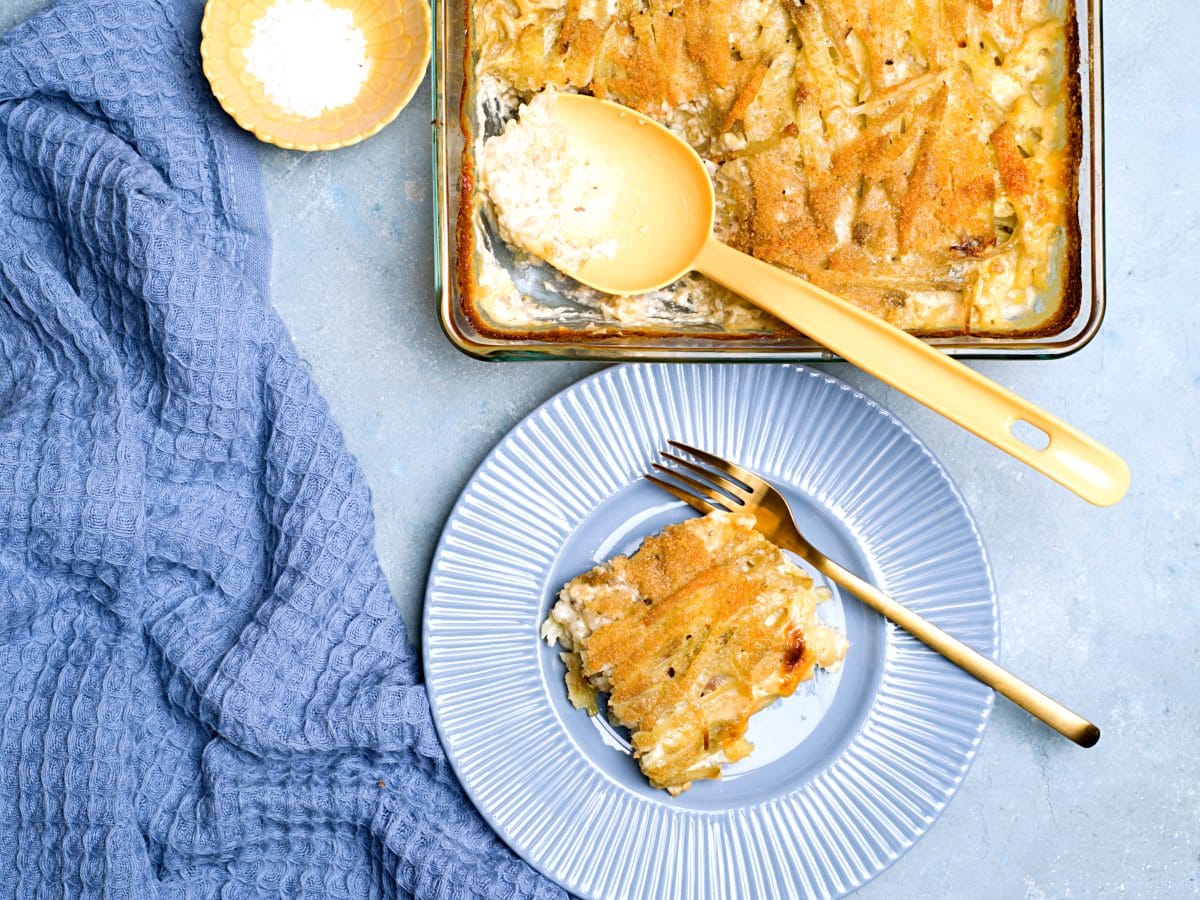
Names your boy after a food
Many Swedish dishes have some names included. Some examples are Napoleonbakelse, Biff a la Lindström, and Janssons frestelse.
Napoleonbakelse
Cake with layers of puff pastry, vanilla cream, whipped cream, and jam. Famous in Sweden since the mid-1800s. May refer to the French emperor Napoleon.
File a la Oscar
Butter-fried veal fillet garnished with asparagus, lobster meat, and truffle. Named after Oscar II's 25th anniversary as regent in 1897.
Crepes a la prins Bertil
These thin pancakes are filled with hollandaise sauce, prawns, and dill. Then gratinated with cheese in the oven.
Karl XV: kringlor
Karl XV became one of Sweden's most popular kings of all time, largely due to his reputation as a partygoer. Did not find any information on how these pastries were named after him.
Biff a la Lindström
Beef made from ground meat, egg yolks, whipped cream, grated onion, capers, chopped beets, and chopped potatoes. Named after: Captain Henrik Lindström (1831-1910). He is said to have introduced the dish in the 1860s, inspired by Russian cuisine, at a hotel in Kalmar.
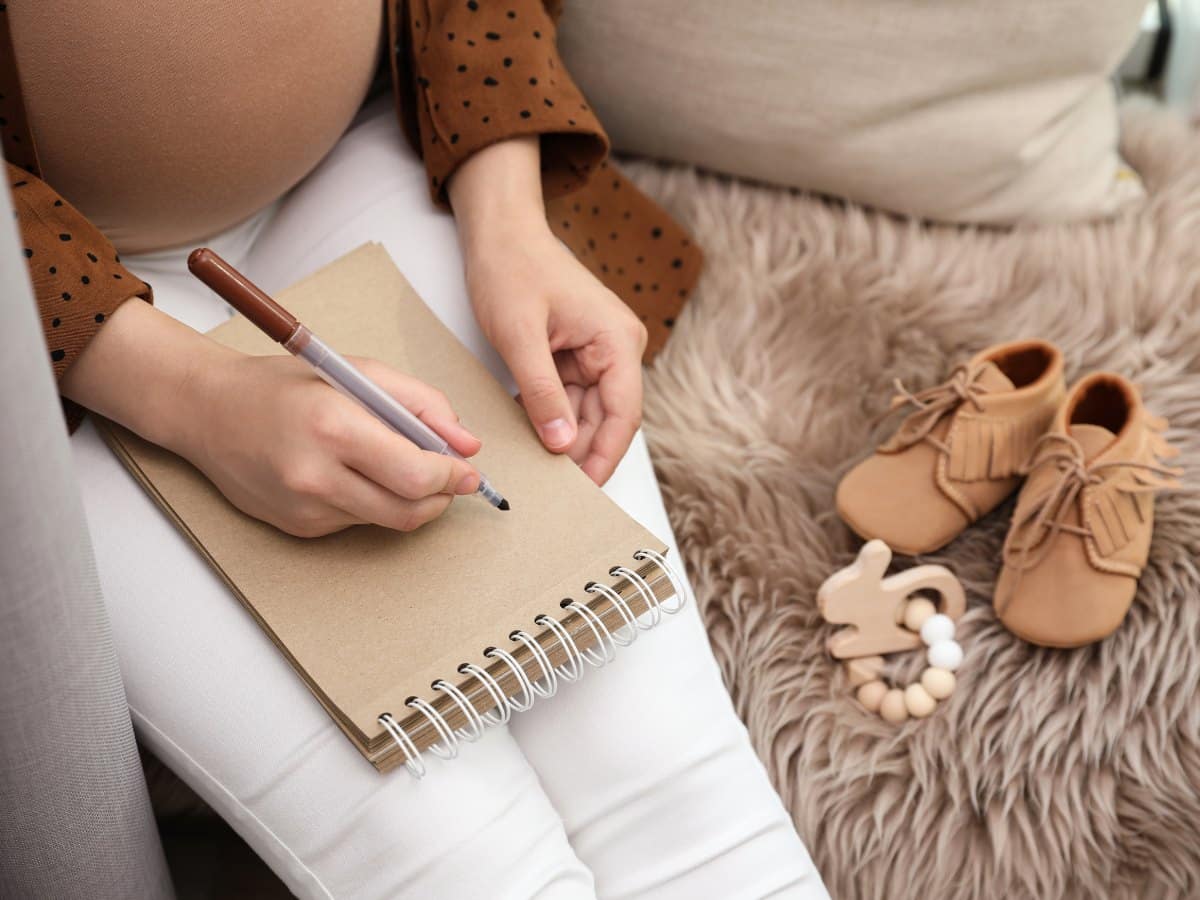
Some sources: Institut för språk o folkminnen. Svenska akademien. Babyhjälp, Expressen.se, Matkult, Baam.se








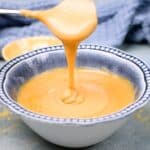


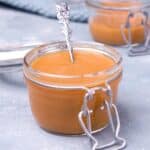
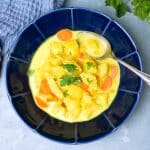
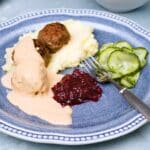
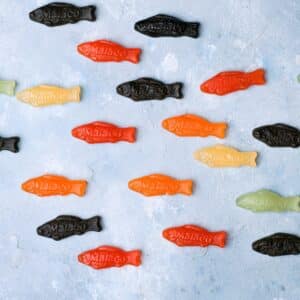



Leave a Reply